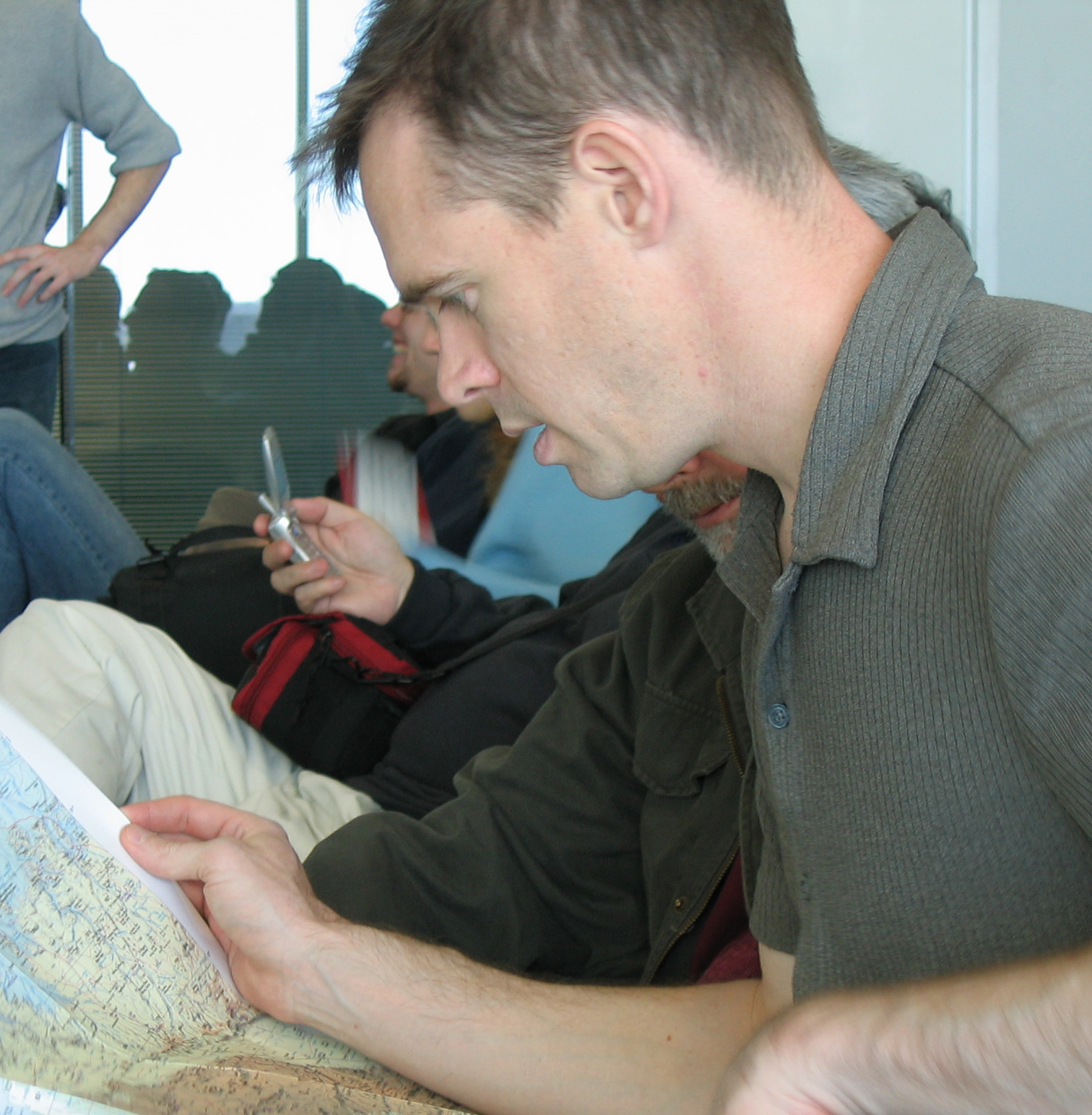The Team
Adrian Jon Brown | SETI Institute/NASA Ames Research Center
To see Dr. Brown's CRISM publications and maps of the north and south pole using CRISM data, visit: http://abrown.seti.org/publications/papers.htm

Where did you grow up?
I grew up in the small, sleepy hamlet of Melbourne (4 million inhabitants), in Victoria, a state of Australia, known unofficially as 'The Land Down Under'.
How
did you get interested in space exploration?
I was personally inspired by George Bush's Vision For Space Exploration. Oh, and I also think it's kind of cool. Extra cool around the Martian poles -- so cold that even carbon dioxide gas freezes to ice in the winter.
What's
your educational background?
I went to the Defense Academy in Canberra, Australia's capital city, and graduated with a bachelor's degree in electrical engineering. After serving in the Royal Australian Navy for a time, I decided to strengthen my Information Technology (IT) background and obtained a distance education Masters in Computer Studies from the University of New England, which is in New South Wales--NSW for short. I then worked in IT for a time, while studying for my PhD in planetary Science at Macquarie University in Sydney. My topic was looking at hydrothermally altered rocks in the Pilbara Region of Western Australia; at 3.5 billion years, they are some of the oldest on Earth. I completed my PhD in 2006.
What
are your hobbies?
CRISM is my hobby! Actually, I hold a private pilot's license, so I like to go flying. At the moment, I do most of my flying at the Palo Alto airport near Stanford, CA. Since I got my pilot's license in Australia, I had to transition to an FAA-approved license last year.
What's
your job on CRISM?
I help out with targeting and analyzing images to determine which minerals are on the surface. Currently, most of my interest is centered around Mars polar regions. I'm looking at a really interesting crater that has a fascinating deposit of water ice and is fairly far from the north pole for stable, year-round ice. I am also working on a tool for researchers to access the CRISM data a little more easily, it's called 'MR PRISM'.
How did you make the transition from electrical engineering to Software? Well it's not as difficult as the transition from IT and Engineering to Geology! During my Electrical Engineering degree, I did a lot of computer-related subjects. For example, we were required to do numerical analysis, learn Fortran, and Assembly language. We also had to do circuits and systems, network engineering, and communications subjects. An engineering degree is a good stopping-off point to anywhere technical, although it's not the end of the road for all studies! By completing a masters in Computer Studies, I was able to get into more esoteric IT stuff like compiler theory, expert systems, relational databases, and object oriented design with C++ that was a little too in-depth to be covered by my electrical engineering course work, but I thought it was a natural extension.
It was not a natural extension to study geology immediately after this, and I found it quite different to do courses in stratigraphy, earth processes and systems, mineralogy, volcanic landforms, and so on. It took me a while to adjust my thinking, but I think it's been good to get exposure to an engineering and scientific outlook on reality.
What
excites you about exploring Mars?
The fact is that it's very different from my everyday reality, and yet it is real stuff. The Irish philosopher George Berkeley said "To be is to be perceived". I think we're bringing Mars to life just by observing what is going on over there. It's exciting to bear witness to this amazing pocket of the solar system.
What
advice would you give to someone like you who wants to get involved in space exploration?
It's a tough question. I think you have to know what excites you in life--where's your will taking you? What drives you? Decide on your desired amount of involvement--would you be happy working as a program manager, or do you want to be the one making the discoveries? Or do you want to be an Astronaut just to be famous? Don't think you know the answer; consider yourself at the end of your career and think about all the things you'd like to have achieved. Is your current plan taking you there? Decide on your true goals, and set yourself a plan to get there. The plan doesn't have to be written down, but it does have to continue to make sense every day when you look at it. Otherwise it needs to be changed. Things change, and that's ok. And it's a really good idea to read outside your field.
Check out my website at http://abrown.seti.org
